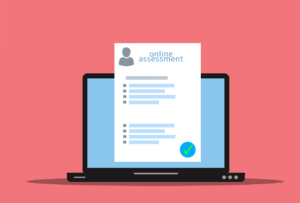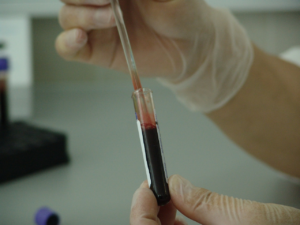Are you a nursing student preparing to take the NCLEX exam? Have you ever wondered how your state’s pass rates compare to others? Understanding the NCLEX exam pass rates by state can provide you with valuable insight into how well your program is preparing you for this crucial exam.
In this article, we will take a comparative analysis of NCLEX exam pass rates by state, examine the factors that contribute to these rates, and provide strategies for improving your chances of passing.
As a nursing student, passing the NCLEX exam is essential to obtaining your nursing license. However, the pass rates vary widely among states, making it important to understand how your state compares. By analyzing pass rates by state, you can determine whether your program is providing you with adequate preparation and identify areas where you may need to focus your studies.
Additionally, understanding the factors that contribute to these rates can give you a better understanding of what to expect on exam day and how to best prepare yourself for success. In the following sections, we will take a closer look at NCLEX exam pass rates, the contributing factors, and strategies for improving your chances of passing.
Key Takeaways
- Pass rates for the NCLEX exam vary widely among states, indicating differences in nursing education programs.
- Higher pass rates lead to better job opportunities and improved healthcare for the community.
- Test preparation and student support are key factors contributing to pass rates, and schools that offer resources such as academic advising and mental health counseling can help students navigate the challenges of nursing school.
- Analyzing historical data can identify the states that need more support and resources to improve their pass rates and avoid a shortage of qualified nurses in the future.
The Importance of NCLEX Exam Pass Rates
You can’t afford to take the NCLEX exam lightly – your chances of becoming a licensed nurse depend on passing, and high pass rates in your state mean better job opportunities and improved healthcare for your community.
The importance of NCLEX exam pass rates cannot be overstated. The NCLEX exam is a critical step in the process of becoming a nurse, and passing it is essential for starting your career in the healthcare industry.
To increase your chances of passing the NCLEX exam, you need to prepare thoroughly. There are various preparation techniques you can employ, such as taking practice tests, studying with a group, and reviewing study materials. Additionally, it’s crucial to start preparing early and set a realistic study schedule.
The more time you devote to studying and practicing, the better prepared you’ll be when it’s time to take the exam. Remember, your performance on the NCLEX exam can affect your career and the healthcare industry in your state. So, take it seriously, and prepare well.
NCLEX Exam Pass Rates by State
As you look across the map of the United States, there are noticeable differences in the success rates of nursing students in their ability to obtain licensure. The National Council Licensure Examination (NCLEX) is a standardized exam that all nursing graduates must pass in order to become licensed to practice in their respective state.
The NCLEX exam pass rates vary significantly from state to state, and it’s important for nursing students to be aware of these differences when considering where to attend school and ultimately practice.
Here are some key points to keep in mind when comparing NCLEX exam pass rates by state:
- Some states have consistently high NCLEX exam pass rates, while others struggle to meet the national average.
- The quality of nursing education programs can vary greatly between states, which can impact NCLEX exam pass rates.
- Certain states may have more rigorous licensure requirements, which can make it more difficult for nursing graduates to pass the exam.
- Factors such as population density, healthcare infrastructure, and access to resources can also impact NCLEX exam pass rates by state.
By understanding the NCLEX exam pass rates in different states, nursing students can make informed decisions about where to attend school and where they may want to practice after graduation. It’s important to remember that there are many factors that can impact NCLEX exam pass rates, and nursing students should do their own research and consider all relevant factors when making decisions about their education and career.
Factors Contributing to NCLEX Exam Pass Rates
Understanding the various factors that impact a state’s nursing education programs can shed light on the differences in success rates for obtaining licensure. One of the key factors that contribute to NCLEX exam pass rates is test preparation. Students who have access to comprehensive test preparation programs tend to perform better on the exam. These programs can include practice exams, study guides, and tutoring services. Additionally, schools that integrate test preparation into their curriculum may see higher pass rates among their graduates.
Another important factor is student support. Nursing students require a great deal of support to succeed in their program and on the NCLEX exam. Schools that offer resources such as academic advising, career services, and mental health counseling can help students navigate the challenges of nursing school. Additionally, schools that provide clinical experiences and hands-on training can help students gain the skills and confidence they need to pass the NCLEX exam. By prioritizing test preparation and student support, nursing programs can help their students achieve success on the NCLEX exam and in their nursing careers.
| Factors Contributing to NCLEX Exam Pass Rates | |
|---|---|
| Test Preparation | Comprehensive test prep programs, practice exams, study guides, and tutoring services. |
| Student Support | Academic advising, career services, mental health counseling, clinical experiences, and hands-on training. |
Strategies for Improving NCLEX Exam Pass Rates
Implementing effective strategies for enhancing student performance can lead to higher success rates on the licensure exam. One of the most important strategies is to teach students effective study techniques. This includes techniques such as creating study schedules, using flashcards, and taking practice tests. By teaching these techniques, students will be better prepared for the NCLEX exam and will have a higher chance of passing.
Another important strategy is to help students manage their test anxiety. Test anxiety can be a major barrier to success on the NCLEX exam. By teaching students relaxation techniques and helping them develop a positive mindset, they’ll be better able to manage their anxiety and perform well on the exam.
In addition, providing students with opportunities to practice test-taking strategies and strategies for managing anxiety can help them feel more confident and prepared for the exam. By implementing these strategies, nursing programs can help their students achieve higher pass rates on the NCLEX exam.
Trends in NCLEX Exam Pass Rates Over Time
When examining trends in NCLEX exam pass rates over time, you’ll want to consider historical data comparisons. This will help you assess how pass rates have changed over the years and identify any patterns or trends.
Additionally, it’s important to take into account any changes in nursing education and testing standards, as these can have a significant impact on pass rates. By understanding these key points, you can better analyze the data and make informed decisions to improve pass rates in your state.
Historical Data Comparison
Looking back at the data, it’s clear that some states have made significant strides in improving their NCLEX exam pass rates. In fact, the historical data comparison shows that there are states that have consistently maintained a high passing rate over the years. On the other hand, there are also states that have struggled to achieve a passing rate that is comparable to the national average. This data interpretation highlights the importance of a state by state analysis to identify the factors that contribute to the success or failure of their NCLEX exam pass rates.
To further emphasize the significance of this analysis, here are some bullet points that can evoke an emotional response in the audience:
- Thousands of nursing students invest their time, money, and effort to prepare for the NCLEX exam.
- Failing the NCLEX exam not only delays their career but also affects their self-esteem and confidence.
- States with a low passing rate may face a shortage of qualified nurses in the future.
- The quality of nursing education and the resources available for students vary from state to state, which can affect their NCLEX exam performance.
- Improving the NCLEX exam pass rates can lead to better patient outcomes and a stronger healthcare workforce in the country.
By analyzing the historical data, we can identify the states that need more support and resources to improve their NCLEX exam pass rates. This way, we can ensure that every nursing student has an equal chance of passing the exam and pursuing their dream career in healthcare.
Impact of Changes in Nursing Education and Testing Standards
You may be surprised to learn how changes in nursing education and testing standards are affecting the future of the nursing profession. With the ever-evolving landscape of healthcare and the impact of COVID-19, the need for highly skilled and competent nurses has become more critical than ever before.
In response to this growing demand, nursing education has undergone significant changes to ensure that graduates are equipped with the necessary skills to provide quality care in today’s healthcare environment. New nursing education programs are now emphasizing the importance of technology, evidence-based practice, and interprofessional collaboration.
Additionally, the National Council of State Boards of Nursing has implemented changes to the NCLEX exam to align with these new standards. The changes include a new test plan that emphasizes clinical decision-making, critical thinking, and the ability to apply knowledge in real-world situations. As a result, nursing students are now better prepared to enter the workforce and contribute to the healthcare team.
Frequently Asked Questions
What is the format of the NCLEX exam?
The NCLEX Exam Format is a computerized adaptive test that assesses your knowledge and skills in nursing. The exam is broken down into two sections: the NCLEX-RN Exam and the NCLEX-PN Exam. Both exams consist of multiple-choice questions and alternate format questions, such as select-all-that-apply, fill-in-the-blank, and ordered response.
The exam content is based on the four major categories of client needs: safe and effective care environment, health promotion and maintenance, psychosocial integrity, and physiological integrity. To prepare for the exam, it’s important to develop study strategies, such as reviewing content from textbooks, taking practice exams, and utilizing online resources.
Additionally, exam preparation tips include creating a study schedule, taking breaks, and getting adequate rest before the exam.
How long does it take to receive NCLEX exam results?
When you finish taking the NCLEX exam, you’ll receive your results within 48 hours through your state board of nursing. This means that you don’t have to wait long to find out if you passed or not.
It’s important to note that the validity period for your NCLEX exam results is determined by your state board of nursing. This means that depending on where you took the exam, your results may be valid for a different length of time. So, make sure to check with your state board of nursing to find out how long your NCLEX exam results will be valid.
Can you retake the NCLEX exam if you fail?
If you fail the NCLEX exam, don’t worry, you can retake it! The good news is that you can apply to take the exam again after a 45-day waiting period.
But before you do so, it’s important to reflect on your exam preparation strategies. Did you study enough? Did you practice enough questions? Did you understand the content thoroughly? Take some time to review your weaknesses and come up with a plan to improve them.
Consider finding a study group, using review materials, or seeking help from a tutor. With the right mindset and preparation, you can pass the NCLEX exam the second time around.
How much does it cost to take the NCLEX exam?
If you’re wondering about the NCLEX exam cost, it typically ranges from $200-$400, depending on the state you’re in. Financial assistance may be available for those who qualify, so it’s worth looking into if you’re concerned about the cost.
When it comes to scheduling the exam, you’ll need to check with your state’s board of nursing to find out the availability and requirements for registration. Keep in mind that it’s important to give yourself enough time to study and prepare for the exam before scheduling a date.
What is the passing score for the NCLEX exam?
To pass the NCLEX exam, you need to achieve a minimum passing score determined by the National Council of State Boards of Nursing (NCSBN). The passing score for the NCLEX exam is not a fixed number, but is instead determined by a complex statistical process that assesses the difficulty of the questions you were asked and your ability to answer them correctly.
Essentially, the NCLEX exam score interpretation is based on whether you demonstrated the knowledge and skills necessary to safely and effectively practice as a registered nurse. While the exact passing score may vary from one exam to another, it’s typically around 50-60%.
Conclusion
Congratulations! You’ve reached the end of the article about NCLEX exam pass rates by state. Now that you have a better understanding of the importance of these pass rates, the factors that contribute to them, and strategies for improving them, you’re well-equipped to take on the challenge of passing the NCLEX exam.
Remember, each state has its own unique NCLEX exam pass rate, and it’s important to research and understand the factors that contribute to these rates in your state. By following the strategies outlined in this article and staying up-to-date on trends in NCLEX exam pass rates over time, you can increase your chances of success on this important exam and begin your career as a licensed nurse.
Good luck!






























































































































